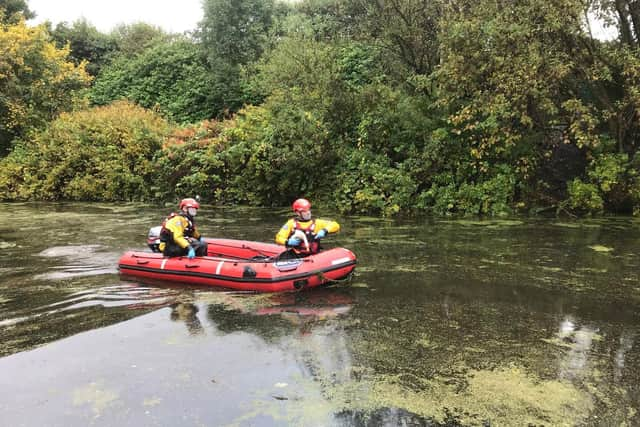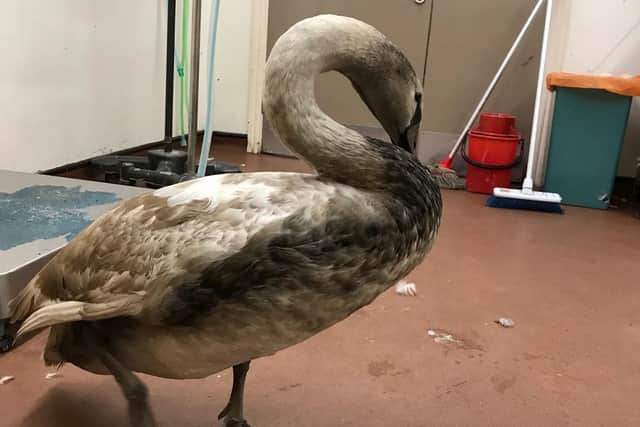Video captures moment oil-covered swans rescued from Lancashire canal by RSPCA
and live on Freeview channel 276
Five swans and an Aylesbury duck were rescued from the canal near Victoria Street at Clayton-le-Moor following reports of contamination in the water earlier this month (October 5).
A team of five water rescue officers were involved in the operation to capture the blackened birds from the spillage.
Advertisement
Hide AdAdvertisement
Hide AdThe birds were then taken to Stapeley Grange Wildlife Centre, in Nantwich, Cheshire, where they were cleaned several times to get rid of the oil.


Lee Stewart, manager at Stapeley Grange, said: "Once the birds were washed they were then transferred to outside pools with other swans, geese and ducks until the oil was cleared from the canal so they could be returned home.
"It is always a team effort to help wildlife in this way and it is so rewarding to see animals we treat happily go back to their home."
If oil is not removed from waterbirds it reduces the natural waterproofing in their plumage, leaving them at risk of dying from hypothermia, according to the animal welfare charity.
Advertisement
Hide AdAdvertisement
Hide AdEvery oiled bird is assessed on arrival to Stapeley Grange and sometimes multiple deep cleans are needed to remove all the contaminates.


The RSPCA says It can be fairly labour intensive, sometimes taking two members of staff 30 minutes for each wash.
To help the RSPCA keep investigating incidents like this, donate through their website by clicking HERE.
Comment Guidelines
National World encourages reader discussion on our stories. User feedback, insights and back-and-forth exchanges add a rich layer of context to reporting. Please review our Community Guidelines before commenting.